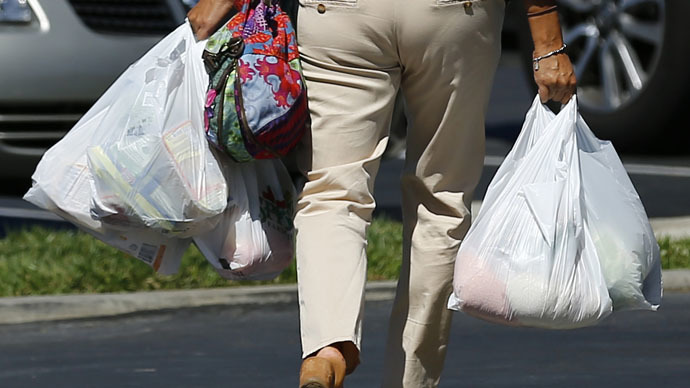Fantastic without plastic: Hawaii’s plastic bag ban leads US in eco-consciousness

While Hawaii was the last state to join the union, it recently became the first state to ban plastic bags at supermarkets. All county-level laws prohibit stores from handing out non-biodegradable bags.
The law went into effect on July 1 and covers Oahu, the state’s most populated island. Oahu is the last island in the state to bring the hammer of the law down on the bag, neatly locking it into place with every other local government in Hawaii, according to Mashable.
READ MORE: EU Parliament backs drastic cuts to
irrepressible plastic bag use
The ban contains several important exemptions, such as bags used
for the medical and sanitary purposes or the wrapping of meat,
fish and bulk items. Retailers caught using bags for non-exempt
purposes face heavy penalties ranging from $100 to $1000 per day
in the case of violation.
Retailers are encouraged to comply with the ban by using
recyclable paper bags, reusable bags or special biodegradable
plastic bags.
The measure occurred just in time, beating California, which
itself was just about to acquire the distinction of being the
first to ban plastic bags statewide after passing a law. However,
a November 2016 referendum will have the final say on whether or
not the legislation actually takes effect.
Hawaii’s method is proof that banning the bag isn’t something
that needs to be passed down from a state legislature. The
environmental measure has also previously been implemented on the
municipal level like in cities like Chicago, Illinois and
Portland, Oregon. Washington, DC and other localities charge a
tax for each paper or plastic bag used at food stores.
Plastic bags aren’t biodegradable, and less than one percent of
plastic bags are recycled. Even when they are, it costs more than
producing a new one.
“There's harsh economics behind bag recycling: It costs
$4,000 to process and recycle one ton of plastic bags, which can
then be sold on the commodities market for $32,” said Jared
Blumenfeld, the director of San Francisco's Department of the
Environment, according to Temple University’s Office of
Sustainability.
South Africa, Rwanda, Zanzibar, and the French island of Corsica
have all banned throwaway plastic bags.












